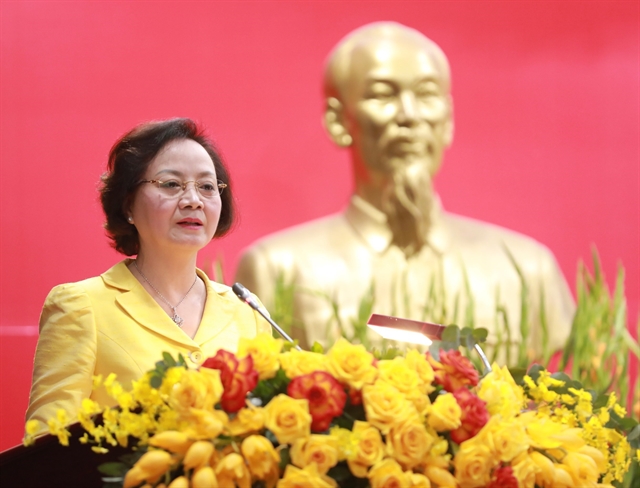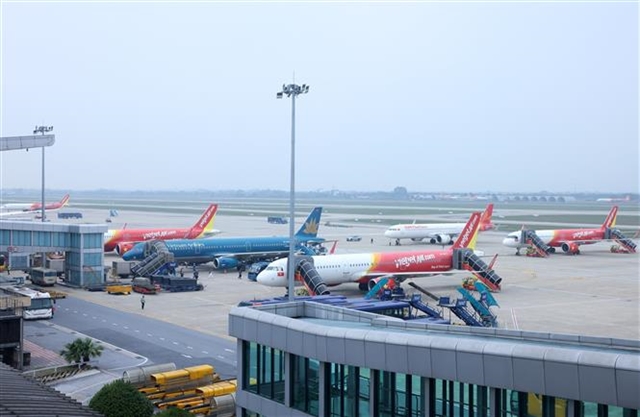 Opinion
Opinion

Minister of Home Affairs Phạm Thị Thanh Trà, who is also Deputy Head of the Government Steering Committee for Administration Reform, talks to Sài Gòn Giải phóng (Liberated Saigon) online newspaper about public administrative reform results and measures needed to improve tasks.

|
| Minister of Home Affairs Phạm Thị Thanh Trà. — Photo sggp.org.vn |
Minister of Home Affairs Phạm Thị Thanh Trà, who is also deputy head of the Government Steering Committee for Administration Reform, talks to Sài Gòn Giải phóng (Liberated Saigon) online newspaper about public administrative reform results and measures needed to improve tasks.
Could you analyse more clearly about achievements in public administration reform in 2021? What are main factors behind those positive results?
In general, there were positive changes in the satisfaction of people and organisations about State agencies as well as the 2021 public administration reform (PAR) index in spite of difficulties caused by the COVID-19 pandemic.
Particularly, people's satisfaction about administrative agencies improved. The average value of this index was 87.16 per cent, higher than the figure of 2020.
Public administration reform has made positive changes, especially in institutional reform. Online public services provided at level 3 and level 4 (the highest level) increased to 76 per cent.
Also, the restructure of the apparatus and streamline of personnel fulfilled the set targets.
National digital transformation was promoted, contributing to the construction of the e-government and e-administration.
In the context of special difficulties of 2021 due to impacts of the pandemic, the Government, the Prime Minister, ministries, sectors and localities paid great attention to promoting administration reform.
In comparison with 2020, the PAR Index and the index measuring the satisfaction about administrative services of the Home Affairs improved in terms of ranking with the highest rate among ministries. How was this result achieved?
The Ministry of Home Affairs has made improvements in comparison with the previous year. It was attributed to the efforts of the ministry's agencies and units to reform and improve services quality towards the satisfaction of people and businesses.
However, I am not really satisfied with the result. As an agency providing consultancy for the Government in administration reform, I still always require the ministry's agencies and units to continue improving public services quality and improving the satisfaction of people and organisations about administrative services provided by them.
One important goal of the ministry is to become one of leading units in digital transformation among ministries and sectors. We will continue strengthening administrative reform, building a professional and modern administration serving the people, putting the people at the centre and taking people's satisfaction as a measurement to evaluate the operation quality of the State administrative apparatus, contributing to promoting innovation.
Additionally, we will strongly build and develop the e-government and the digital government in association with administrative reform in order to improve operation and services effectiveness and efficiency towards transparency, publicity and modernity.
What are shortcomings remained that ministries, sectors and localities need to improve?
Although administrative reform has gained positive results, it has still failed to meet expectations. Construction and implementation of institutions, policies and laws failed to meet requirements. This is also a factor hindering the socio-economic recovery and development.
Shortcomings in implementation of administrative reform also affects investment and the business environment as well as people's expectations.
What should ministries, sectors and localities do to improve administrative reforms to gain results as expected?
It is necessary to acknowledge that there are many things to do in the future. Focus should be put on synchronously and resolutely reforming related institutions and policies to help remove all barriers and mobilise resources used to promote socio-economic recovery and development.
Attention should also be paid to administrative procedure reform, particularly in provision of online public services to speed up digital transformation in handling administrative procedures for people, organisations and businesses.
More than ever, it is time to restructure the apparatus to make it work more effectively and improve the administration quality to meet new requirements.
It is also essential to improve and uphold responsibilities of public officers and cadres in serving people and businesses.
Finally, it's critical to boost the national digital transformation comprehensively and synchronously from the centre level to grassroots level. This is the target but also the motivation of administration reform, helping to promote the development of the digital government, digital economy and digital society, contributing to building a State administration of the people, by the people and for the people. — VNS




